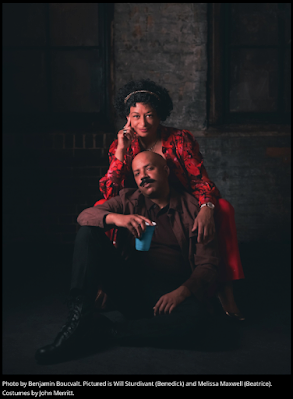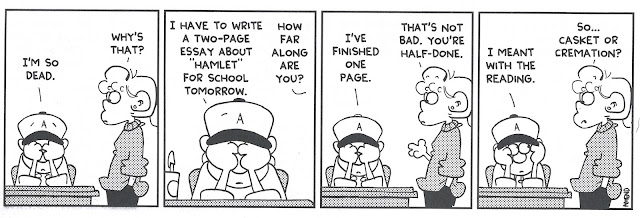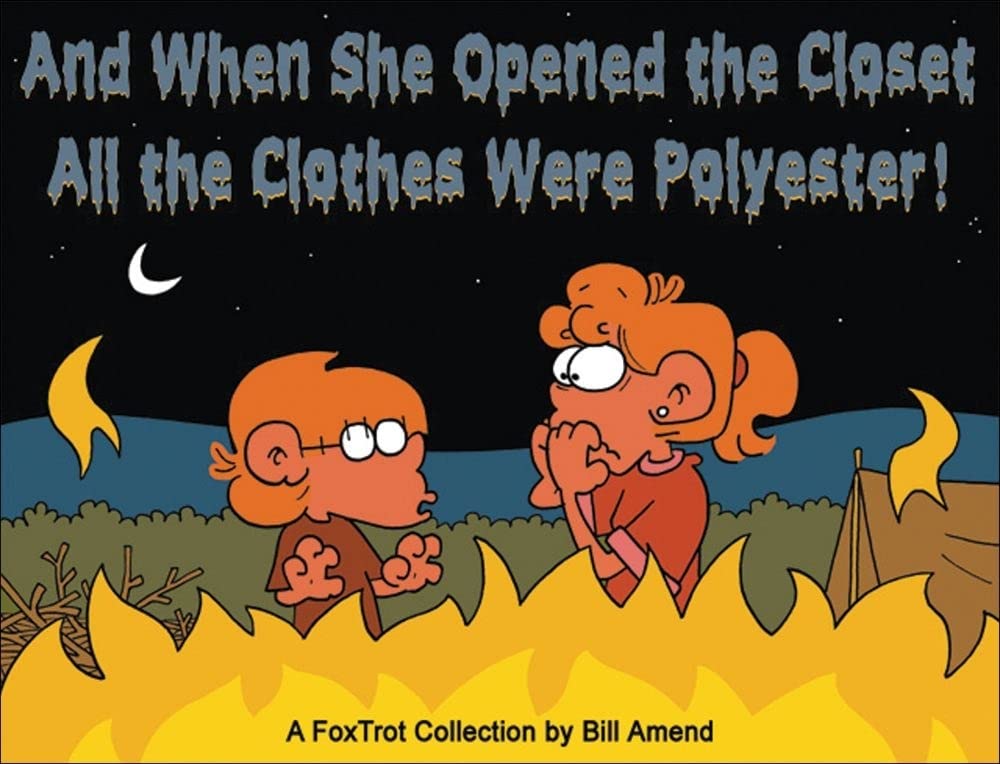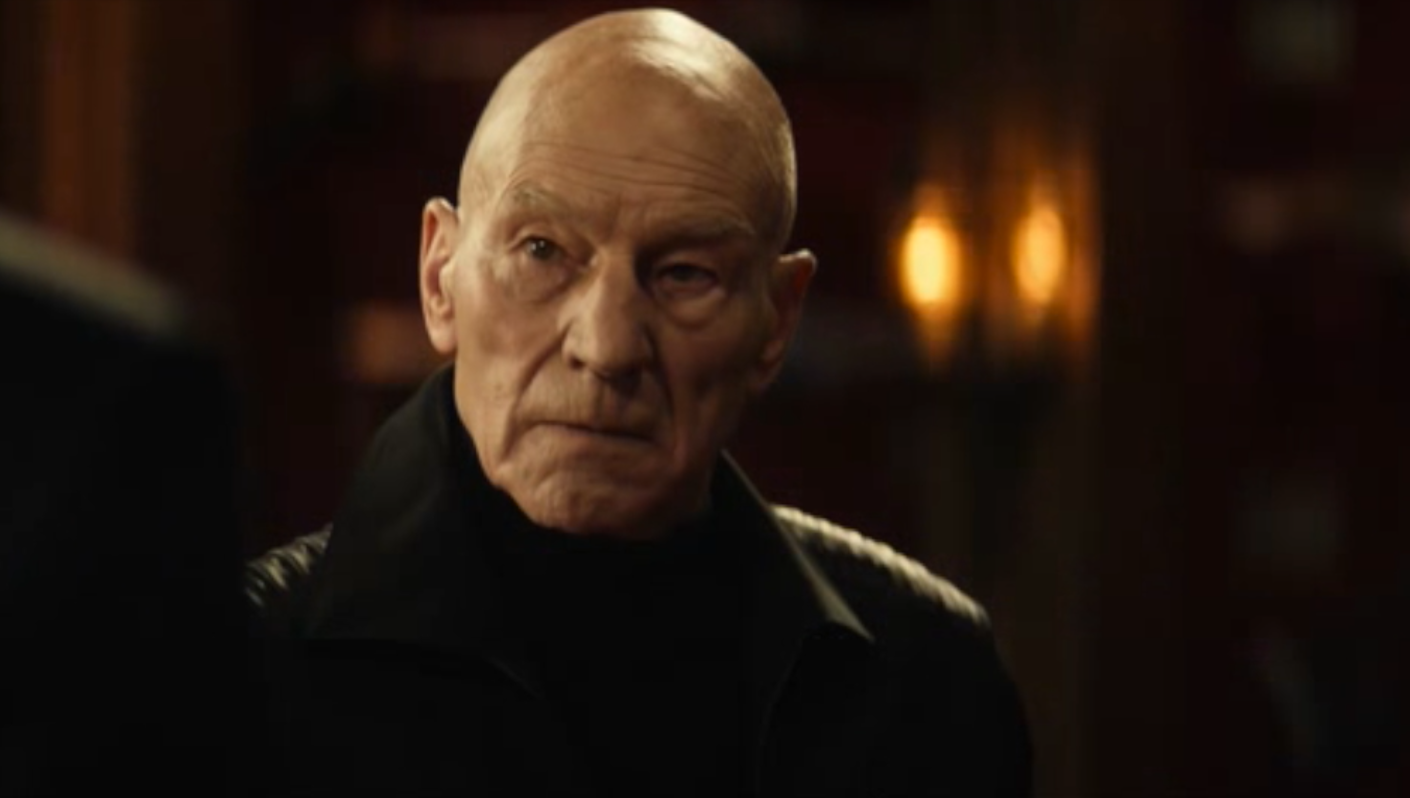Hamlet. Dir. Doug Scholz-Carlson. Perf. Tarah Flanagan, Melissa Maxwell, Will Sturdivant, Christopher Gerson, Michael Fitzpatrick, Emily Fury Daly, Benjamin Boucvalt, Daniel Ajak, and Diana Coates. Great River Shakespeare Festival. Winona, Minnesota. 2024.
Much Ado About Nothing. Dir. Gaby Rodriguez. Perf. Melissa Maxwell, Will Sturdivant, Tarah Flanagan, Christopher Gerson, Marina Narveaz, Izzy Heckman, Michael Fitzpatrick, Emily Fury Daly, Benjamin Boucvalt, Daniel Ajak, and Diana Coates. Great River Shakespeare Festival. Winona, Minnesota. 2024.
I was only able to get to the Great River Shakespeare Festival toward the very end. When that happens, I'm always sad. It means that I can't go back and see the plays again, and it means I'm limited in my ability to promote that season's plays.
But take this as an alert to set aside time, space, and funding to see all the plays in the Great River Shakespeare Festival's 2025 season!
Additionally, I'd like to share what I saw in each of this season's shows. I'll do that in my usual list of things that were, in one way or another, striking.
Hamlet
The Cast. First, Tarah Flanagan was a terrific Hamlet. She's an actress, but she played Hamlet as a male. There wasn't any Asia Neilsenesque backstory (for which,
q.v.)—just a solid, multi-faceted performance of the deeply-troubled melancholy and manic Dane. I knew, more or less, the plot going in, but Flanagan's performance kept me wondering what she'd do next. I found that uncertainty refreshing; it helped us live through the actions of the play as if we didn't know what was coming next.
Chris Gerson's Horatio was played as an older mentor to Hamlet—as if, when Hamlet calls him "fellow student" (I.ii.177), he's making an ironic joke about a former university professor whose philosophy was that both he and his students are all in the business of being students together. Gerson played Hamlet as "that man / that is not passion's slave" (III.ii.71–72) through most of the play. The reading extended Horatio's declaration that "I am more an antique Roman than a Dane" (V.ii.341) back through the entire play, explaining both his skepticism and his stoicism.
The gravediggers (Michael Fitzpatrick and Emily Fury Daly) might have stepped right out of last's year's GRSF As You Like It with no questions asked. I enjoyed their over-the-top country-bumpkin comic relief.
Claudius (Will Sturdivant) and Gertrude (Melissa Maxwell) were very strong. Their performances (and other parts of this production) reminded me of Kevin Kline's Hamlet.
The Lighting. There wasn't any.
Actually, that's the opposite of the truth. Hundreds of interesting lighting effects were worked in seamlessly throughout the production—which made the points where there wasn't much lighting that much more effective.
Many of those involved the appearance of "the ghost" (which I'm putting in air quotes because the production seems to question whether there is such a thing or not). In the opening scene, most of the lighting is delegated to a few flashlights held by Marcellus, Bernardo, and Horatio. No one was able to see much of anything. Indeed, I'm not yet certain whether Will Sturdivant (doubling as Claudius and Hamlet's Father's Ghost) was on stage for that scene or not.
When Hamlet confronts the Ghost in Act I, scene v, we see a bit more every now and that. What we see is mostly a shadowy figure—but the actor was wearing a shirt with luminous skeleton bones on it, and we glimpsed that when the lights came up. If that sounds a bit like a cheap Halloween costume or the Schoolhouse Rock song "Them Not-So-Dry Bones" to you, put the thought out of your mind. Mostly.
The Pacing. This was a fast Hamlet. It started immediately after the house lights went down and ran at a very quick clip throughout. The pace added to the uncertainty principle of the production. Nothing seemed inevitable—it seemed more like split-second decisions that had to be made immediately and, if characters had only had a bit more time to think, they might have made other decisions.
Props. There weren't many, but, when Claudius realizes that Hamlet knows his secret (after the play-within-the-play), he comes on stage with a handgun. He sets this down to pray (always a good idea, even if you're not sincere in your repentance), and it's what Hamlet uses when he contemplates avenging his father's death then and there. Later, it's how Hamlet rashly and unthinkingly dispatches of Polonius, thereby fulfilling the "Checkhov's Gun" rule. This was a little bit of a missed opportunity, though. Claudius notices that his gun is missing, but he essentially just shrugs and exits. It might have been more effective if he had made a more thorough search for it and then realized that some madman might have taken it. He could then much more frantically run off to try to prevent a tragedy from occurring and have even more justification for exiling Hamlet to England.
Eavesdropping. This part, I'm genuinely sorry to say, is one of the only things that didn't work well in the production. Hamlet awkwardly conceals himself between the end of Act III, scenes ii and iii solely in order to hear Claudius' plan to send him to England. That does explain how he knows about the plan when he talks with Gertrude in the closet scene, but it's not really necessary. Or, if it proves necessary to have the audience know how Hamlet learns that, he should have deliberately eavesdropped through the rest of the exchange—and then been prevented from eavesdropping on Claudius' "O, my offense is rank" soliloquy in some way.
The Text. I love a production that invites its readers to return to the text to see something they've missed, and this one helped me notice things I hadn't seen before. Among the things I want to explore are the word "dew" (used twice by Horatio, once by Hamlet, and once by Laertes), the use of the word "passion" (used eleven times!—and I never clocked it until this production), the many places "ear" is used (I've noticed that before, but I'm called to re-examine its use now), and whether the Wittenberg connection can be found in a pun about the Diet of Worms in Hamlet's line "Your worm is your only emperor for diet" (IV.iii.21). I also want to explore the words "murther" and "murder" and see when the text uses the one or the other—and why.
I don't have quite as much to say about the GRSF's Much Ado About Nothing, but that's not because it wasn't a solid production. I enjoyed it very much. It was also a fast-paced play with a lot of cuts that made its run time well under two hours.
Here are some things I appreciated about this production in particular.
Dogberry. Instead of having him deliver his instructions to the Watch in one fell swoop, they spaced out those lines throughout the play. Whenever the Watch would eavesdrop on some villainous plan of Don John et al., Dogberry would bring up another point about how the Watch doesn't have to do anything about it at that moment.
Don John. We're given a one-dimensional mustache-twiring (literally) villain, and that's fine. We know where we are with him from the beginning. And Gerson seemed to have a lot of fun knocking a picnic table over over and over.
Beatrice and Benedick. We saw lots of good chemistry between these two from the get-go. And we all rejoiced when they acknowledged their love for each other.
Leonato and Hero. The edits to this production enabled Leonato to be more empathetic toward Hero's plight. Indeed, he takes on the Friar's speeches, thereby coming up with the plan to restore Hero's name.
The Ending Scene. This production conflated the scene where Claudio offers a eulogy to Hero with the closing wedding scene. It sped things up considerably and avoided the awkwardness of a modern production trying to get us to believe that Claudio will marry anyone Leonato asks him to.
Next Season
Whatever the GRSF decides to put on in the 2025 season (I'm hoping for Measure for Measure and Julius Caesar), plan on being there—I do and I will!



















































